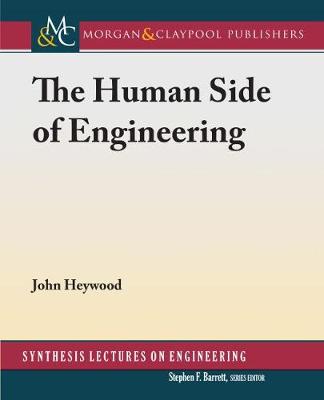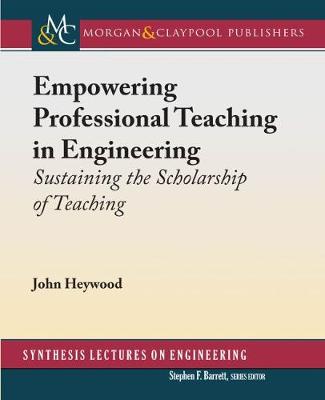Synthesis Lectures on Engineering
2 total works
While in many university courses attention is given to the human side, as opposed to the technical side of engineering, it is by and large an afterthought. Engineering is, however, a technical, social, and personal activity. Several studies show that engineering is a community activity of professionals in which communication is central to the engineering task. Increasingly, technology impacts everyone in society. Acting as a professional community, engineers have an awesome power to influence society but they can only act for the common good if they understand the nature of our society. To achieve such understanding they have to understand themselves. This book is about understanding ourselves in order to understand others, and understanding others in order to understand ourselves in the context of engineering and the society it serves. To achieve this understanding this book takes the reader on 12 intellectual journeys that frame the big questions confronting the engineering professions.
Each one of us has views about education, how discipline should function, how individuals learn, how they should be motivated, what intelligence is, and the structures (content and subjects) of the curriculum. Perhaps the most important beliefs that (beginning) teachers bring with them are their notions about what constitutes ""good teaching"". The scholarship of teaching requires that (beginning) teachers should examine (evaluate) these views in the light of knowledge currently available about the curriculum and instruction, and decide their future actions on the basis of that analysis. Such evaluations are best undertaken when classrooms are treated as laboratories of inquiry (research) where teachers establish what works best for them.
Two instructor centred and two learner centred philosophies of knowledge, curriculum and instruction are used to discern the fundamental (basic) questions that engineering educators should answer in respect of their own beliefs and practice. They point to a series of classroom activities that will enable them to challenge their own beliefs, and at the same time affirm, develop, or change their philosophies of knowledge, curriculum and instruction.
Two instructor centred and two learner centred philosophies of knowledge, curriculum and instruction are used to discern the fundamental (basic) questions that engineering educators should answer in respect of their own beliefs and practice. They point to a series of classroom activities that will enable them to challenge their own beliefs, and at the same time affirm, develop, or change their philosophies of knowledge, curriculum and instruction.

